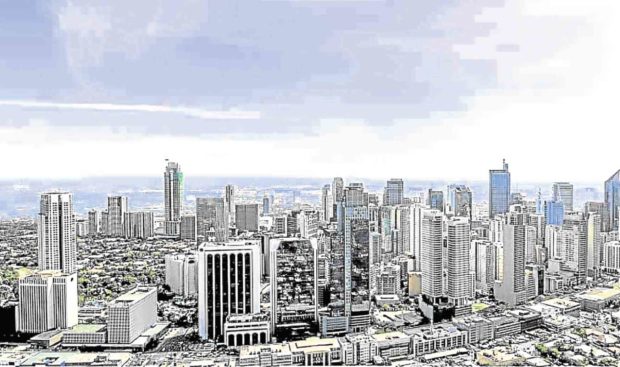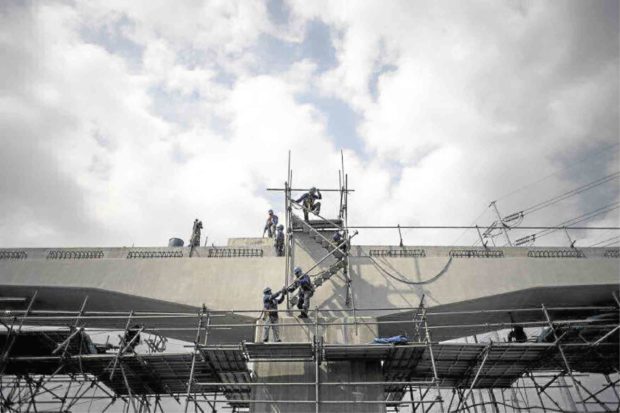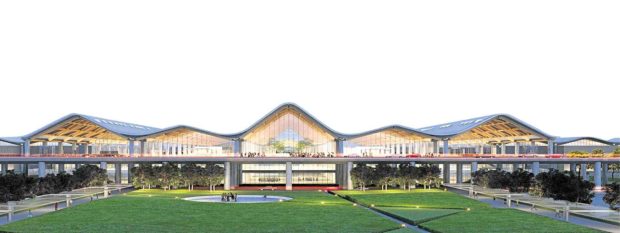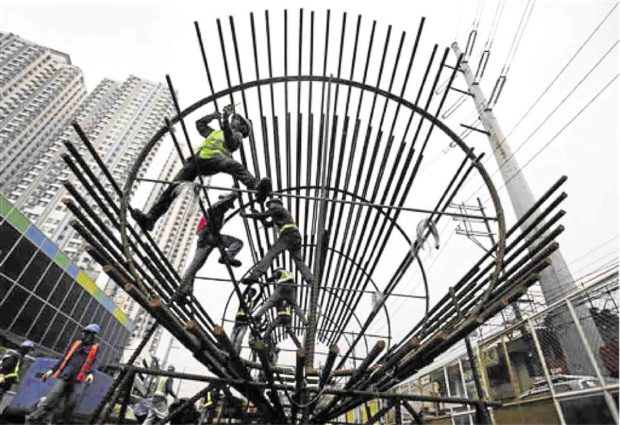Sustained economy propels PH property

Perennial growth drivers such as household consumption remain robust while manufacturing and foreign investments’ combined contribution to aggregate economic output continues to expand. These are complemented by the Duterte administration’s push to aggressively build crucial public projects such as airports, railways, and expressways, thus lending strong support for the government’s goal of spurring business opportunities outside the country’s capital.
OFW remittances and outsourcing revenues meanwhile should sustain strong domestic demand.
These growth drivers have partly shielded the Philippine economy from global economic shocks and their benefits should trickle down to key segments of the property sector.
Non-outsourcing firms drive demand
About a decade ago, an estimated 50 to 60 percent of office space in Metro Manila was occupied by outsourcing firms.

The government’s infrastructure push should banner the Philippine property and GDP growth over the next two to three years.
These are business process outsourcing (BPO) companies providing voice support services as well as knowledge process outsourcing (KPO) firms that offer higher-value services such as health information management, software engineering, legal transcription and finance and accounting. This demand eventually diversified following the influx of offshore gaming firms from China in the fourth quarter of 2016.
At Colliers, we observed that office space absorption from traditional and non-outsourcing locators has also been expanding over the past 24 months.
‘Golden Age of Infra’ to spur office space take up
Colliers also observed that firms actively taking part in the government’s infrastructure projects are also occupying larger office spaces.
We have recorded a combined 14,000 sqm of deals from engineering and construction firms in the first quarter of 2019 in Makati, Quezon City, and Fort Bonifacio. The government intends to double its infrastructure spending to about 6 percent of annual GDP or P1 trillion ($19 billion) a year from 2019 to 2022.
This is likely to support expansion of construction and engineering firms’ activities, which should eventually compel them to occupy larger office spaces across Metro Manila.
Ramped up residential supply
Over the next three years, demand for residential units, particularly house and lots (H&L), in the provinces should be supported by sustained remittances from overseas Filipino workers (OFWs), which reached $10.8 billion in the first four months of 2019, up 3.7 percent year on year, according to data from the central bank.
The sustained growth in remittances along with decelerating inflation and the central bank’s decision to cut interest rates by 25 basis points, should result in a cheaper cost of borrowing money. Developers looking for sites with strong end-user demand should consider provincial locations such as Pampanga, Cavite, Laguna, Batangas, Bacolod, Iloilo, and Davao.
Condominium take up holds firm
We still see sustained demand for residential condominiums in Metro Manila over the next 12 months. Strong demand in the pre-selling market continues to raise residential prices, especially in the Bay Area. Meanwhile, leasing demand remains firm, especially in business hubs that house offshore gaming firms from China.
The residential sector complements office space completions across Metro Manila. The offshore gaming segment and the local and foreign investors, continue to sustain demand in both pre-selling and secondary condominium markets
New industrial supply to support manufacturing growth
Colliers also believes that take up of industrial space and warehouses over the next three years should be sustained by the steady growth of the manufacturing sector. The said segment grew by 6.8 percent a year over the past three years, faster than the 6.6 percent annual GDP growth during the period.
Manufacturing activities are a major absorber of industrial space in the country.

Developers are urged to acquire land in areas where economic activities are likely to be fueled by major infrastructure projects.
The development of the first Sino-Philippine industrial park by Ayala Land north of Metro Manila shows growing interest from industrial locators and developers to expand outside of the Cavite-Laguna-Batangas corridor, the country’s primary industrial hub.
The Philippines’ warm relations with China, competitive wages, and improving cargo rail infrastructure should further entice more Chinese manufacturers to invest in the Philippines.
Another major driver of the industrial segment is the warehousing sector. Developers have since been aggressive in modernizing their warehouses in response to the thriving e-commerce segment.
Philippine property moving forward
In our opinion, real estate developers should strategically acquire land in key locations outside Manila where economic activities are likely to be fueled by major infrastructure projects. Given these public projects in the pipeline, we see Cavite, for one, coming to its own as an urban center south of Manila, while Metro Clark in Pampanga should be North Luzon’s main business hub.
Moving forward, we see developers aligning their projects with the government’s infrastructure push which should banner the Philippine property and GDP growth over the next two to three years.

